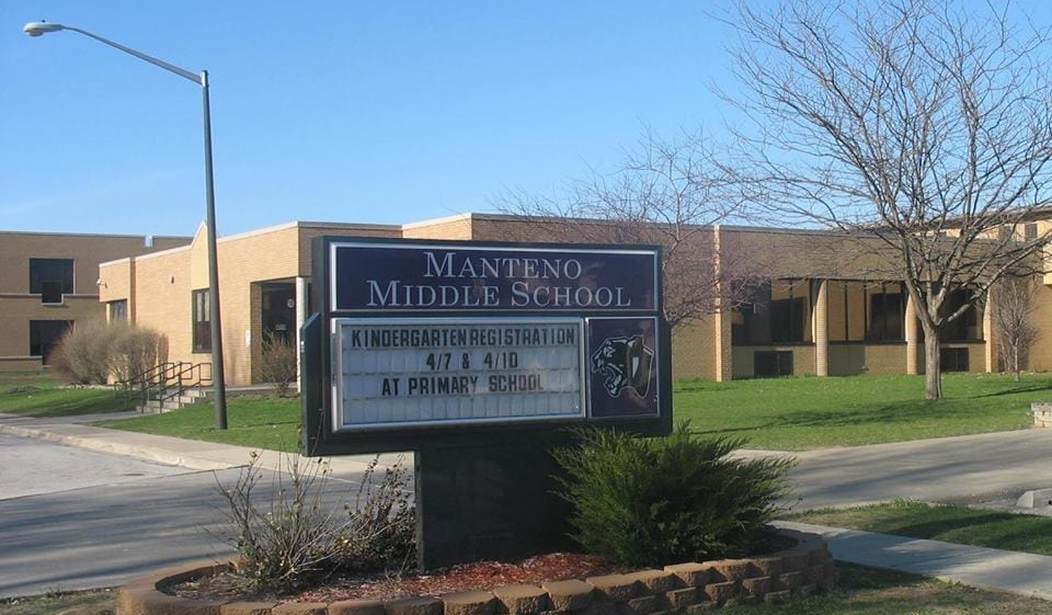Middle school student Paul Boron of Illinois, age 13, is facing serious charges after recording a conversation with his school principal. In Illinois, the eavesdropping charge with which Boron has been charged is a Class 4 felony, and a sentence can potentially include jail time, remand to a juvenile detention center, and/or fines up to $25,000.
Boron used his cellphone to record approximately ten minutes of conversation with the principal and assistant principal of Manteno Middle School in Manteno, Illinois. The conversation about missed detentions took place in a reception area with the door open.
According to the independent group Illinois Policy, Boron told Principal David Conrad and Assistant Principal Nathan Short that he was recording the conversation after they had been speaking for about ten minutes. At that point, they report, “Conrad allegedly told Boron he was committing a felony and promptly ended the conversation.”
That was in February. In April, the thirteen-year-old Boron was indeed charged with a single felony count of eavesdropping for his cellphone recording of a chat with the principal about detention.
More:
In his petition to bring the charge, Kankakee County Assistant State’s Attorney Mark Laws wrote that Boron on Feb. 16 “used a cellphone to surreptitiously record a private conversation between the minor and school officials without consent of all parties.” Members of the Manteno Community Unit School District No. 5 board, Conrad and Short have not responded to requests for comment on the incident.
“We cannot comment on a pending matter, and we are not authorized to release confidential student information to the press,” district Superintendent Lisa Harrod wrote in an email.
Illinois Policy, which lobbies on matters of “personal freedom,” explains that the issue of the state’s eavesdropping laws has come up before, calling them among the nation’s most “severe.”
Christopher Drew, an artist arrested for selling artwork on a Chicago sidewalk in 2009, was charged with a felony for recording the incident. In 2010, Bridgeport resident Michael Allison was charged with a felony for recording his own court hearing after the court did not provide a court reporter. The same year, Chicagoan Tiawanda Moore was charged with a felony for recording conversations with Chicago Police Department investigators regarding her sexual misconduct complaint against an officer.
The implications here should be obvious to anyone who is concerned with issues of personal freedom or government accountability. Recording authority figures has been a crucial tool in recent years, catching mistreatment or abuse by police and other accountable government entities, and is an obvious safeguard against future abuse.
In a situation with children, not only is it in their interest to protect themselves against more powerful adults who may abuse their position of authority, but it is also a deterrent against that abuse.
Recordings from classrooms at high schools and colleges have already captured misconduct by teachers ranging from physical altercations with students to verbal tirades or even political rants.
The privacy concerns of those being recorded weigh relatively lightly on balance. In the first place, there is not a huge reasonable expectation of privacy in a public setting like a school or classroom at a government-run facility. In the second place, the privacy of an authority figure when meting out discipline or exercising his or her authority is much less a liberty issue than the freedom of the individual being subjected to it to defend his person or reputation.
Quincy lawyer Saleem Mamdani, who prepared a presentation for an Illinois State Bar Association seminar regarding Illinois’ eavesdropping law, also expressed disbelief.
“With authority figures, if you are engaging in official action, how are you expecting that to be private?” he said. “You are relying on the fact that you had this conversation in imposing current or future discipline.”
In the specific matter of Boron’s charges, Illinois Policy suggests his last best hope may be the statehouse rather than the courthouse.
“It would be heart-wrenching,” McNally said of the possibility that her son is found guilty.
“He didn’t do anything wrong, and for him to be snatched from his family, the emotional impact that’s going to have … it’s just going to follow him throughout his years.”
Given the zeal with which Illinois prosecutors have enforced the state’s eavesdropping law, reform from the Statehouse may be Boron’s best hope.
It’s a scary situation when a child can face such serious charges for the relatively simple act of ensuring that what is said to him by adults with power over him can be verified by others who have power over them.









Join the conversation as a VIP Member